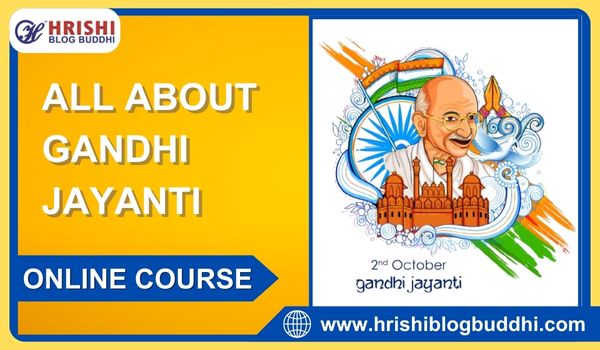Mahatma Gandhi once said that happiness comes when our thoughts, words, and actions are in harmony. Considering the challenges our world faces, achieving this harmony is crucial. To make this happen, especially for the youth who are the future leaders, it’s vital to follow the principles of Truth and Non-violence.
In today’s world, many people, especially young ones, feel frustrated and sometimes get angry. While this anger might come from seeing unfair things happening, it’s important to understand that responding with non-violence is much more effective. So, young people need to learn how to deal with problems calmly, logically, and without using violence. This is a responsibility that requires self-control and discipline.
The contemporary world often presents situations that trigger frustration and anger. Injustices, inequalities, and systemic issues can evoke strong emotions, particularly among the youth. Gandhiji’s teachings offer a profound insight into dealing with anger constructively. While he acknowledged the natural human response to injustice, he advocated for channeling that anger into non-violent action.
The challenge lies in transforming anger into a force for positive change. This requires a shift in mindset – from reactive anger to proactive non-violence. The youth, with their energy and passion, have the potential to be torchbearers of this transformative approach. Gandhian ideals provide a roadmap for addressing societal issues without resorting to violence, fostering a culture of dialogue, understanding, and compassion.
Gandhi Jayanti: A Time for Reflection
If we really want to honor Mahatma Gandhi in a meaningful way, it’s about bringing his ideas into our daily lives. Some may think these principles are outdated, but the truth is the opposite – Gandhian ideals are not just relevant; they are crucial. Whether we see Gandhi as a historical figure or continue to adopt and share his impactful teachings is a personal choice.
Gandhian Ideals in Real Life: Stories that Inspire
To understand how Gandhi’s ideas work in today’s world, let’s look at stories where these principles made a positive difference. Examples of successful non-violent movements, both in India and around the world, show us the lasting strength of Truth and Non-violence.
The Indian Independence Movement
Mahatma Gandhi led the Indian independence movement, proving the effectiveness of non-violent resistance. Through civil disobedience, peaceful protests, and a commitment to Truth, Gandhiji rallied millions of Indians against colonial rule. The Salt March of 1930, a symbol of non-violent protest, remains a powerful event in history.
Martin Luther King Jr. and the Civil Rights Movement
In the United States, Martin Luther King Jr. found inspiration in Mahatma Gandhi’s philosophy during the fight for civil rights. King’s leadership in the American civil rights movement emphasized non-violent resistance, echoing the principles he learned from Gandhiji. The famous March on Washington for Jobs and Freedom in 1963 was a landmark event showcasing the strength of peaceful protest.








